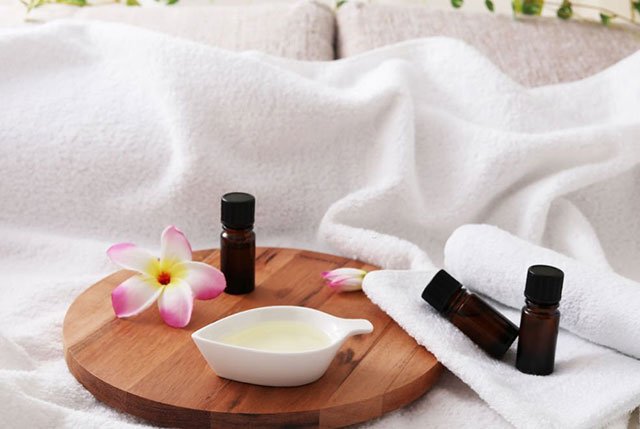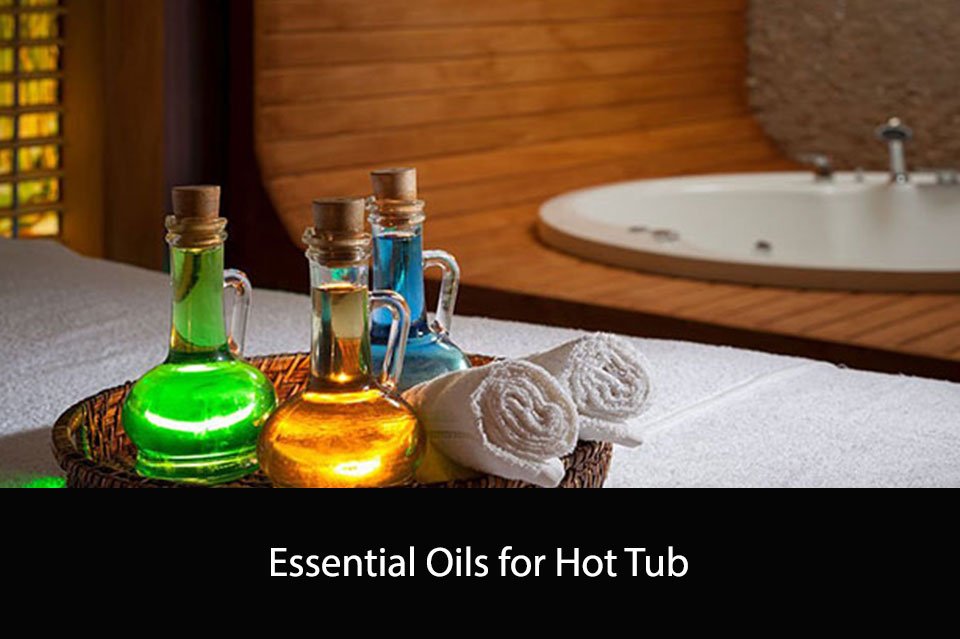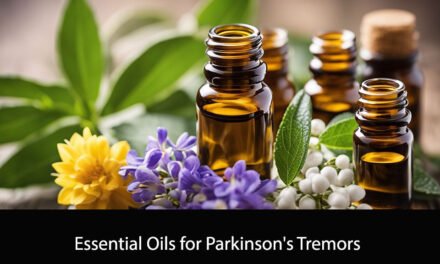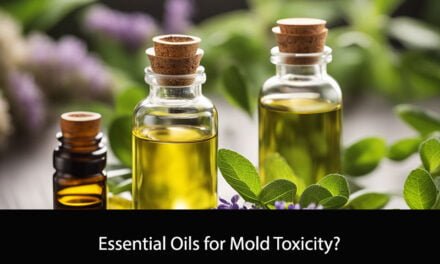Essential oils have become increasingly popular in recent years for their therapeutic benefits. From promoting relaxation to boosting immunity, these oils have a variety of uses. One area where essential oils can be particularly beneficial is in hot tubs. Adding essential oils to your hot tub can not only enhance your overall experience but also provide numerous health benefits.
When it comes to essential oils for hot tubs, there are a few things to keep in mind. First, it’s important to choose high-quality oils that are safe for use in water. Some oils can be irritating to the skin or cause damage to the hot tub’s components. Additionally, it’s important to use the right amount of oil to avoid overpowering scents or skin irritation.
There are many different essential oils that can be used in hot tubs, each with its own unique benefits. Some oils, such as lavender and chamomile, are known for their relaxation properties, while others, like eucalyptus and peppermint, can help to clear sinuses and promote respiratory health. By incorporating essential oils into your hot tub routine, you can create a spa-like experience that promotes both physical and mental wellness.

Understanding Essential Oils
Essential oils are highly concentrated plant extracts that are used for a variety of purposes, including aromatherapy, massage, and skincare. They are also becoming increasingly popular in hot tubs, as they can provide a range of benefits, from relaxation to muscle relief.
When choosing essential oils for your hot tub, it’s important to understand their properties and potential effects. Here are some key factors to consider:
Quality
The quality of essential oils can vary greatly, so it’s important to choose a reputable supplier. Look for oils that are 100% pure, with no additives or synthetic fragrances. Organic and wildcrafted oils are also a good choice, as they are less likely to contain harmful chemicals.
Dilution
Essential oils should never be used undiluted in a hot tub, as they can cause skin irritation and other adverse effects. Instead, they should be mixed with a carrier oil or emulsifier before adding to the water. The recommended dilution ratio is usually around 1-2 drops of essential oil per 1 ounce of carrier oil or emulsifier.
Compatibility
Not all essential oils are suitable for use in hot tubs, as some may react with the water or affect the pH balance. It’s important to choose oils that are safe for use in water, and to avoid those that are known to cause irritation or allergic reactions.
Effects
Different essential oils have different properties and effects, so it’s important to choose oils that align with your desired outcome. For example, lavender oil is known for its calming and relaxing properties, while peppermint oil can help to alleviate muscle pain and soreness.
By understanding these key factors, you can choose the right essential oils for your hot tub and enjoy their many benefits.
Benefits of Essential Oils for Hot Tubs
Using essential oils in your hot tub can provide a range of benefits for your body and mind. Here are some of the key benefits of using essential oils in your hot tub:
Aromatherapy
One of the main benefits of using essential oils in your hot tub is the aromatherapy they provide. Essential oils are highly concentrated plant extracts that are known for their therapeutic properties. When added to your hot tub, they release their natural fragrance, which can help to relax your mind and body.
Some of the most popular essential oils for aromatherapy in hot tubs include lavender, eucalyptus, peppermint, and chamomile. These oils can help to reduce stress, promote relaxation, and improve your overall mood.
Skin Health
In addition to their aromatherapy benefits, essential oils can also be beneficial for your skin. When added to your hot tub, they can help to moisturize and nourish your skin, leaving it feeling soft and smooth.
Some of the best essential oils for skin health in hot tubs include tea tree oil, which has antiseptic properties that can help to prevent acne and other skin infections, and rose oil, which can help to reduce the appearance of fine lines and wrinkles.
Mental Wellbeing
Finally, using essential oils in your hot tub can also be beneficial for your mental wellbeing. The aromatherapy benefits of essential oils can help to reduce stress, promote relaxation, and improve your overall mood.
In addition, some essential oils, such as peppermint oil, can help to improve mental clarity and focus, making them a great choice for when you need to clear your mind and focus on a task.
Overall, adding essential oils to your hot tub can provide a range of benefits for your body and mind. Whether you’re looking to relax, improve your skin health, or boost your mental wellbeing, there’s an essential oil that can help.
Types of Essential Oils Suitable for Hot Tubs
When it comes to essential oils, there are a wide variety of options to choose from. However, not all essential oils are suitable for use in hot tubs. In this section, we will discuss the top three types of essential oils that are safe and effective for use in hot tubs.
Eucalyptus
Eucalyptus essential oil is a popular choice for hot tubs due to its refreshing scent and therapeutic benefits. This oil is known for its ability to help clear the sinuses and promote respiratory health. Additionally, eucalyptus oil has anti-inflammatory and analgesic properties, which can help to relieve sore muscles and joint pain.
To use eucalyptus oil in your hot tub, simply add a few drops to the water and allow it to circulate for a few minutes before getting in. Be sure to follow the manufacturer’s instructions for the amount of oil to add based on the size of your hot tub.
Lavender
Lavender essential oil is another popular choice for hot tubs due to its calming and relaxing properties. This oil is known for its ability to help reduce stress and anxiety, promote relaxation, and improve sleep quality.
To use lavender oil in your hot tub, add a few drops to the water and allow it to circulate for a few minutes before getting in. You can also mix lavender oil with a carrier oil, such as coconut or jojoba oil, and use it as a massage oil before or after your hot tub session.
Tea Tree
Tea tree essential oil is a great choice for hot tubs due to its antibacterial and antifungal properties. This oil is known for its ability to help prevent and treat skin infections, such as acne, athlete’s foot, and ringworm.
To use tea tree oil in your hot tub, add a few drops to the water and allow it to circulate for a few minutes before getting in. Be sure to follow the manufacturer’s instructions for the amount of oil to add based on the size of your hot tub.
Overall, when choosing essential oils for your hot tub, it is important to choose oils that are safe and effective for use in water. Always follow the manufacturer’s instructions for the amount of oil to add and avoid using oils that may cause skin irritation or allergic reactions.

How to Use Essential Oils in Hot Tubs
Using essential oils in your hot tub can enhance your relaxation and rejuvenation experience. However, it is important to use them properly to avoid any adverse effects. In this section, we will discuss the dosage, safety precautions, and best practices for using essential oils in hot tubs.
Dosage
When it comes to using essential oils in hot tubs, less is more. We recommend using only a few drops of essential oil per use. Overuse of essential oils can lead to skin irritation, allergic reactions, and other adverse effects. It is also important to note that some essential oils are more potent than others, so it is important to research the specific oil you plan to use and follow the recommended dosage.
Safety Precautions
Before using essential oils in your hot tub, there are a few safety precautions to keep in mind. First, never apply undiluted essential oils directly to your skin or add them directly to the hot tub water. Instead, mix the essential oil with a carrier oil such as coconut or almond oil before adding it to the hot tub. Second, be aware of any allergies or sensitivities you may have to certain essential oils. Always test a small amount of the diluted oil on your skin before using it in the hot tub. Lastly, keep essential oils out of reach of children and pets.
Best Practices
To get the most out of your essential oils in your hot tub, there are a few best practices to follow. First, always add the essential oils to the hot tub after the water has been filled and the jets are turned on. This will help to evenly distribute the oils throughout the water. Second, make sure to properly store your essential oils in a cool, dry place away from sunlight and heat. This will help to preserve the potency of the oils. Lastly, always follow the manufacturer’s instructions for using essential oils in your hot tub.
By following these dosage, safety, and best practice guidelines, you can safely and effectively use essential oils in your hot tub to enhance your relaxation and rejuvenation experience.
Maintenance of Hot Tubs Using Essential Oils
Cleaning
Cleaning your hot tub is important to maintain its longevity and ensure that it is safe to use. Essential oils can be used to help clean your hot tub while also providing a pleasant aroma.
To clean your hot tub using essential oils, add a few drops of your preferred oil to a bucket of warm water. Use a sponge or cloth to wipe down the surfaces of your hot tub. Be sure to rinse thoroughly with water to remove any residue.
Some essential oils that are particularly effective for cleaning hot tubs include tea tree oil, eucalyptus oil, and lemon oil. These oils have natural antibacterial properties and can help remove dirt and grime from your hot tub.
Water Quality
Maintaining the water quality in your hot tub is crucial to prevent the growth of harmful bacteria and ensure that it is safe to use. Essential oils can be used to help maintain the water quality in your hot tub.
To improve the water quality, add a few drops of essential oils to your hot tub water. Some oils that are effective for this purpose include lavender oil, peppermint oil, and rosemary oil. These oils can help reduce bacteria and promote relaxation.
It is important to note that essential oils should not be used as a substitute for regular water maintenance. Be sure to regularly test the water chemistry and adjust the levels as needed. Additionally, be sure to follow the manufacturer’s instructions for maintaining your hot tub.
Conclusion
In conclusion, essential oils can be a great addition to any hot tub experience. They can provide a range of benefits, from relaxation to aromatherapy. However, it is important to use them safely and properly.
When using essential oils in your hot tub, be sure to dilute them properly and avoid using too much. It is also important to choose high-quality oils from a reputable source to ensure their purity and effectiveness.
Overall, essential oils can be a great way to enhance your hot tub experience. Just be sure to use them responsibly and enjoy the benefits they have to offer.

Frequently Asked Questions
What essential oils are safe to use in a hot tub?
Not all essential oils are safe to use in a hot tub. Some essential oils can cause skin irritation or allergic reactions. It is important to use essential oils that are specifically formulated for use in hot tubs. Some safe options include lavender, eucalyptus, peppermint, and tea tree oil.
What are some popular aromatherapy scents for hot tubs?
There are many popular aromatherapy scents for hot tubs, including lavender, eucalyptus, peppermint, tea tree oil, and citrus scents like lemon and orange. These scents can help promote relaxation, relieve stress, and soothe sore muscles.
How do I properly add essential oils to my hot tub?
To properly add essential oils to your hot tub, first, make sure your hot tub is properly balanced. Then, add a few drops of essential oil to your hot tub water. Be sure to mix the oil into the water thoroughly to ensure even distribution.
Can adding essential oils to my hot tub cause any damage?
Adding essential oils to your hot tub can cause damage if not done properly. Some essential oils can cause damage to the hot tub’s surface or plumbing if they are not specifically formulated for use in hot tubs. It is important to use only essential oils that are safe for use in hot tubs and to follow the manufacturer’s instructions carefully.
What are some alternative ways to add scents to my hot tub?
There are several alternative ways to add scents to your hot tub, including using scented candles, aromatherapy diffusers, or scented bath salts. However, it is important to make sure that any products you use are safe for use in hot tubs.
Are there any precautions I should take when using aromatherapy in my hot tub?
Yes, there are some precautions you should take when using aromatherapy in your hot tub. First, make sure to use only essential oils that are specifically formulated for use in hot tubs. Additionally, be sure to follow the manufacturer’s instructions carefully and avoid using too much oil, as this can cause irritation or damage to the hot tub. Finally, be sure to rinse off thoroughly after using essential oils in your hot tub to avoid any skin irritation.





